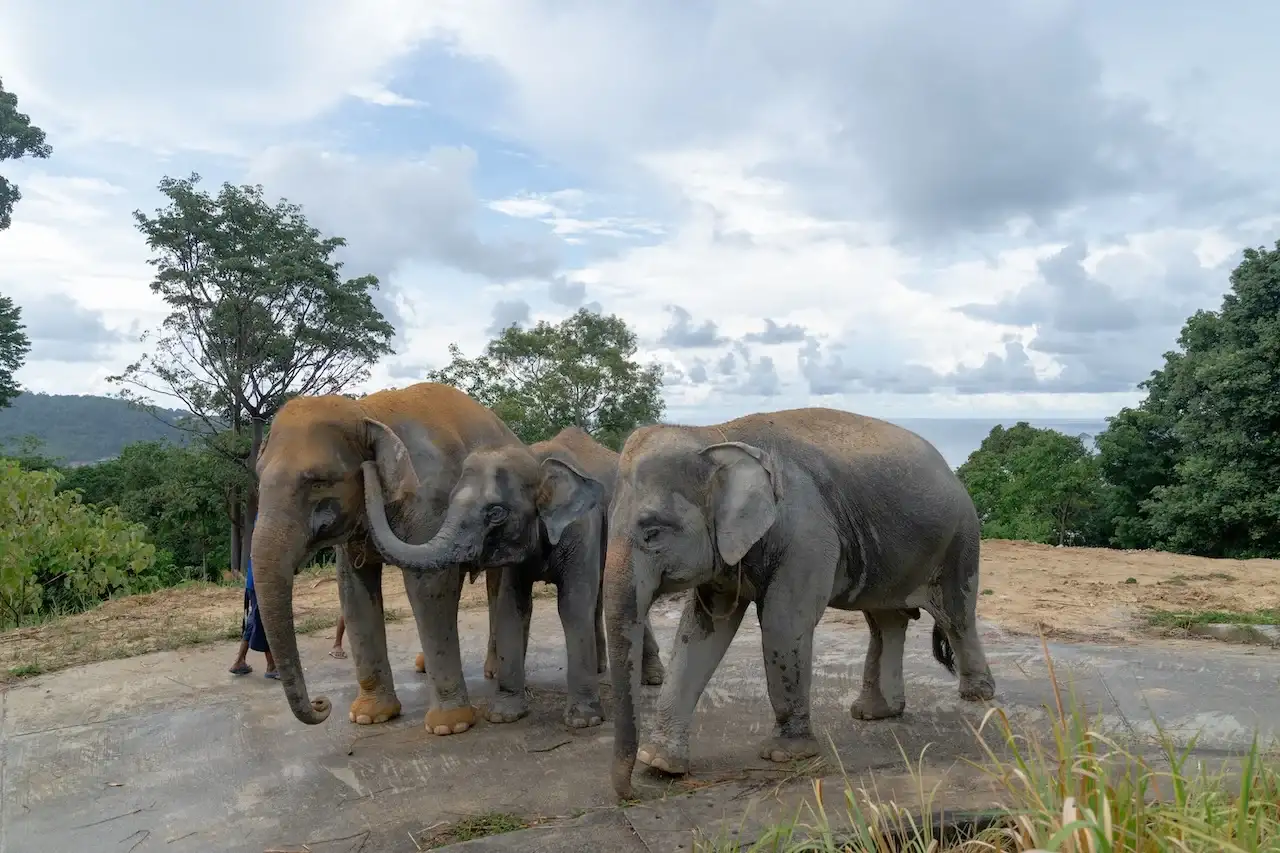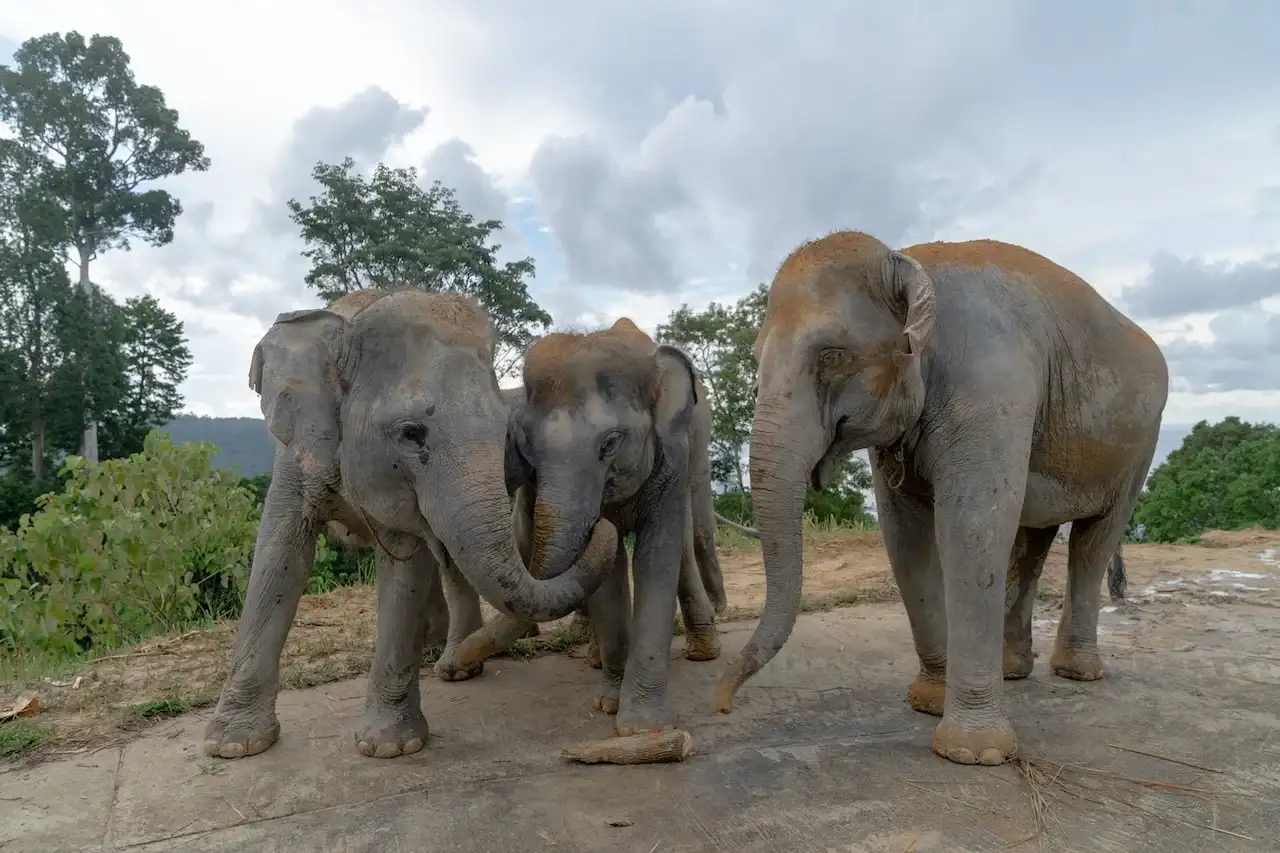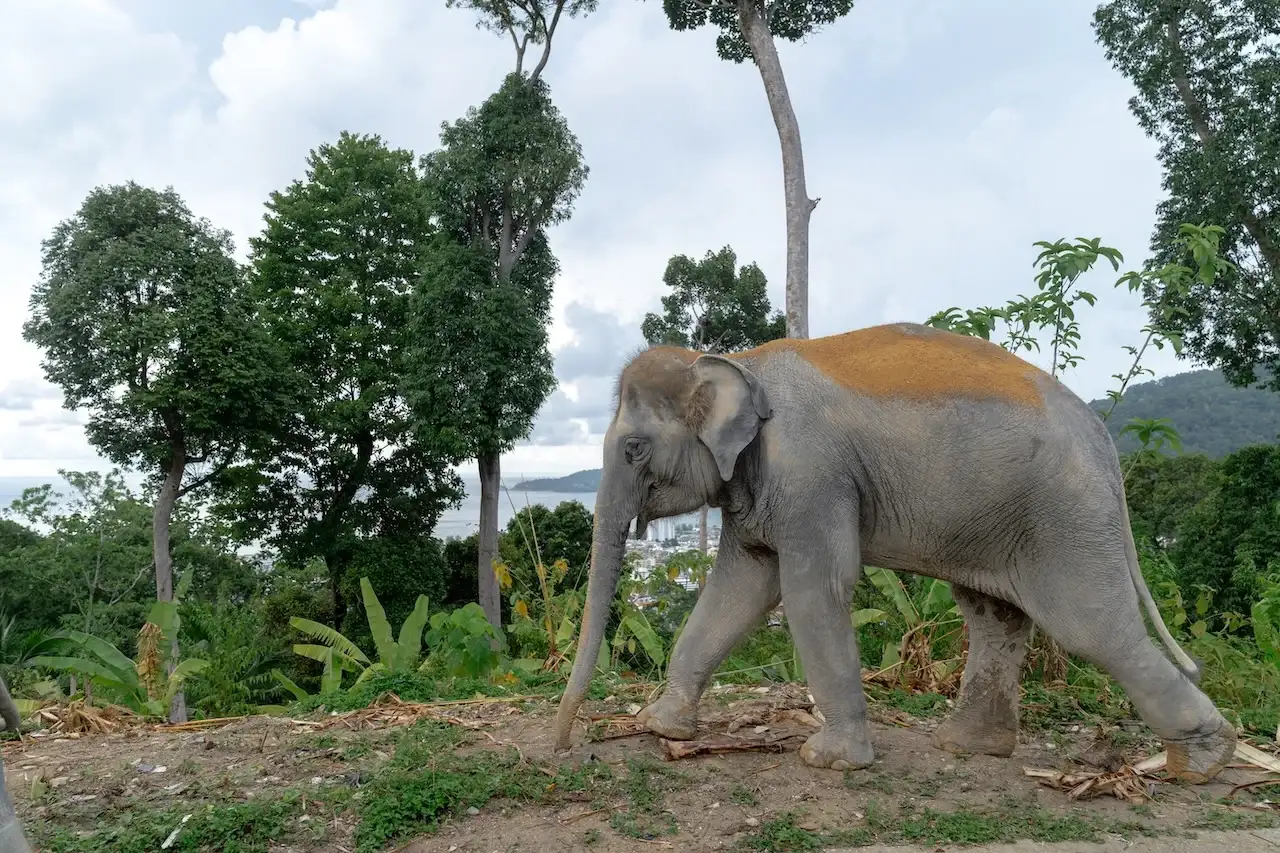Why Ethical Travel in Phuket Matters
Phuket is a name that conjures images of turquoise waters, white sand beaches, and world-famous nightlife. But behind the postcard-perfect photos lies a history of tourism that hasn’t always been kind — especially to its most iconic residents: elephants. For decades, elephants on the island were used for rides, forced to perform tricks, and kept in chains for the entertainment of visitors. The story could have ended there. But it hasn’t. Because travelers like you are demanding something different.

The Problem With Old Tourism
Not long ago, walking down Phuket’s busy streets, you would see dozens of posters advertising “Elephant Trekking.” For many first-time travelers, it seemed like a dream: riding on the back of a giant animal through the jungle. But the reality behind those glossy ads was much darker. Elephants endured long hours, heavy loads, and training methods designed to break their spirits.
These practices left scars — not just on elephants’ bodies, but on Phuket’s reputation as well. As awareness grew, more travelers began asking questions. Could there be a better way to meet elephants? One that honored them instead of exploiting them?
“The way we travel matters. Every choice we make is a vote for the kind of world we want to live in.” — Traveler’s Reflection
A New Kind of Experience
Enter places like Hill Tribe Elephant Village, tucked away in the forest behind Patong Beach. Here, the rules are different: no riding, no shows, no forced bathing. Instead, guests are invited to walk beside elephants, observe them from a respectful distance, and learn their stories. It’s not about control — it’s about connection.
I remember watching Aussie, the youngest of the herd, splash herself with dust while Mali calmly reached for sugarcane. No performance, no commands. Just elephants being elephants. And it was infinitely more powerful than any circus act could ever be.

Why Your Visit Matters
Ethical travel isn’t just about avoiding harm; it’s about creating good. At Hill Tribe Elephant Village, your ticket helps pay for elephant food, veterinary care, and forest restoration. It also supports local hill tribe families who have transitioned from elephant labor to elephant care. In other words, every step you take beside an elephant is also a step toward a better future for both animals and people.
Imagine the ripple effect: by choosing a sanctuary over a trekking camp, you send a message to the entire industry. Camps begin to change, demand for harmful practices decreases, and more elephants get a chance to live freely. Change doesn’t happen overnight, but it starts with choices like yours.
“In the past, elephants worked for us. Today, we work for them.” — Hill Tribe Family
Beyond Elephants: A Model for Travel
Ethical elephant tourism is part of a larger movement toward responsible travel. It’s about asking questions: Where does my money go? Who benefits? What impact does this have on the environment and community? When we choose experiences that give back, we prove that tourism doesn’t have to destroy what we came to see. It can protect it.
Walking with elephants in Phuket isn’t just about the animals. It’s about redefining what it means to travel in Thailand. To move away from cheap thrills and towards experiences that create stories worth telling — ones that don’t leave us feeling guilty when we return home.

Travel That Heals
On my last afternoon at the sanctuary, I sat quietly watching Tad Daow, the most reserved of the group. She stood under the shade of a tamarind tree, slowly tearing bark with her trunk. There was no audience, no applause — just a living being finally allowed to be herself. It was in that moment I realized something: travel has the power to heal, not just harm.
Ethical travel in Phuket matters because it gives us a chance to rewrite the story. To turn a page on exploitation and start a new chapter of respect. And the best part? It’s not just better for elephants. It’s better for us too. Because when we travel ethically, we carry home not only memories, but meaning.
Ethical travel isn’t just about where you go. It’s about how you show up — with curiosity, respect, and care.